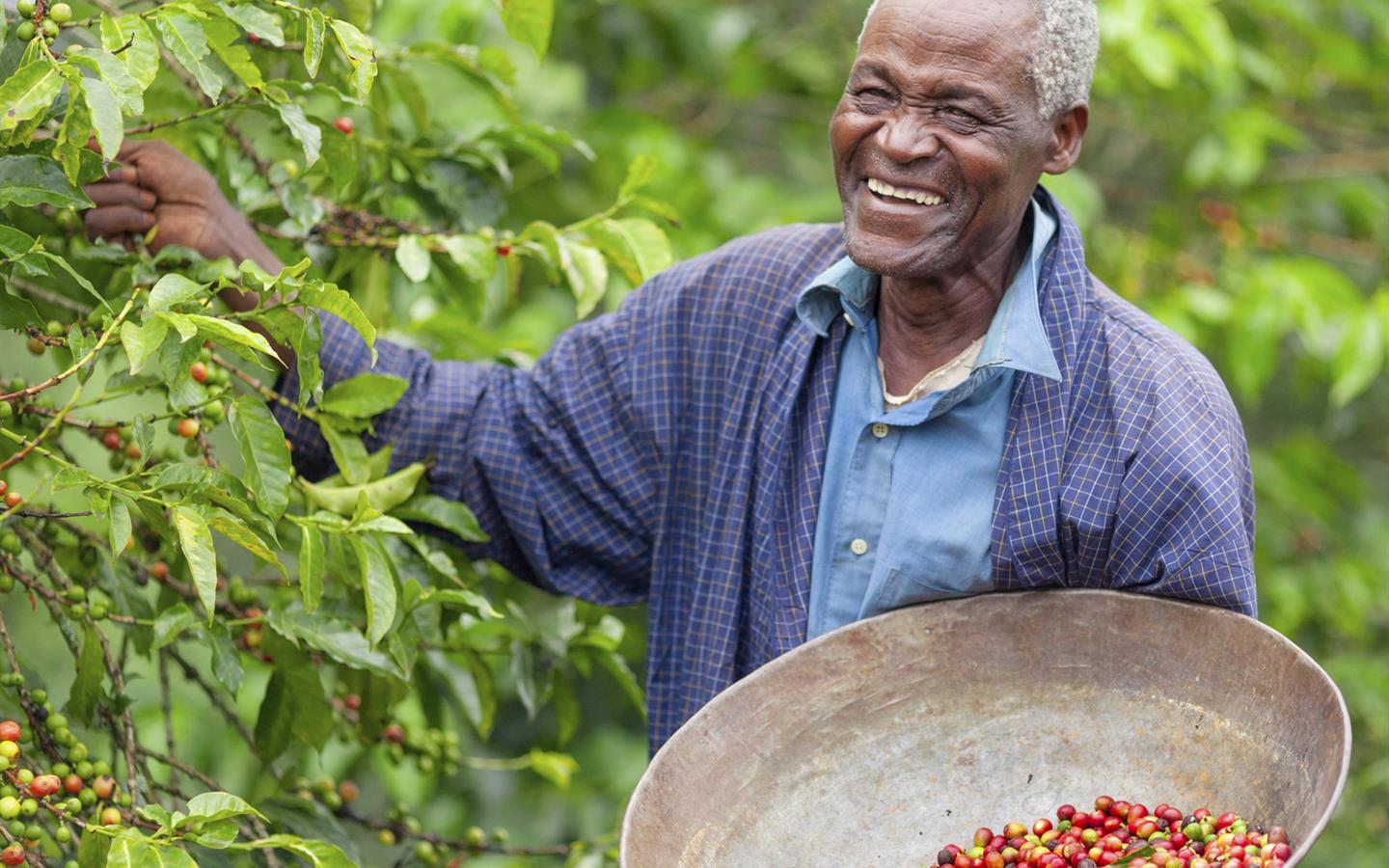Coffee prices have improved by 18 per cent from Sh11,000 per a 50kg bag to Sh13,000 recorded two months ago according to a market report by the Nairobi Coffee Exchange.
The rise in prices is attributed to production of high quality beans especially from Eastern Kenya brought for sale at the auction.
In the five months to June 2018, the price of a 50kg bag had dropped to Sh10,000 due to the coffee berry disease that affected farmers crops in the Central Kenya region.
Kenya’s Arabica coffee prices decreased by Sh1.4bn in the seven months to April this year compared to a similar period in 2017 according to data from the Nairobi Coffee exchange.
In this, the value of the crop reduced from Sh13.1bn to Sh11.7bn in the period under review.
Related
Coffee factory looking for farmers to supply the produce
Food and beverage company plans to improve coffee farmers\' yields
Coffee farmers switch to horticulture for profits

A Kenya coffee farmer picking ripe berries. Courtesy
According to the 2018 economic survey released by the Kenya National Bureau of Statistics in April, the decline in marketed coffee was attributed to adverse weather conditions such as cold which affected the flowering of the coffee trees as well as incidences of coffee berry disease and leaf rust in the main production areas such as Nyeri, Murang’a, Kirinyaga, Embu, Nakuru, Juja and Meru among other regions.
Coffee is Kenya’s fourth leading foreign exchange in Kenya after tea, tourism and horticulture.
The crop is grown mostly grown under cooperatives (75.5 per cent) with smallholder farmers accounting for 24.5 per cent.
Some companies dealing in the production and export of coffee such as Eaagads have already issued profit warnings for the year ended March 2018 due to lower earnings.
Eaagads says its profits will decrease by 25 per cent of the 18.1m recorded in 2017.
Coffee production in the country has been declining drastically from 200,000 tonnes recorded in the 1980s to 40,000 tonnes currently as farmers abandoned it in favor of other crops such as maize, avocado and macadamia farming.
In 2017, for instance Murang’a County lost over 710 acres of coffee farms to other sectors like the construction industry and macadamia farming.
Makuyu, Kangema, Kandara and Gatanga sub-counties lead in the uprooting of the crop according to the Agriculture and Food Authority.
Coffee production in the county has reduced from 200 metric tonnes a year recorded in the 1980s to an average of 20m kilos.
It is projected that by 2022, coffee farmers will have reduced from the current 70,000 farmers to below 40,000.
















Comments powered by CComment